AHS Counsellors at LCI
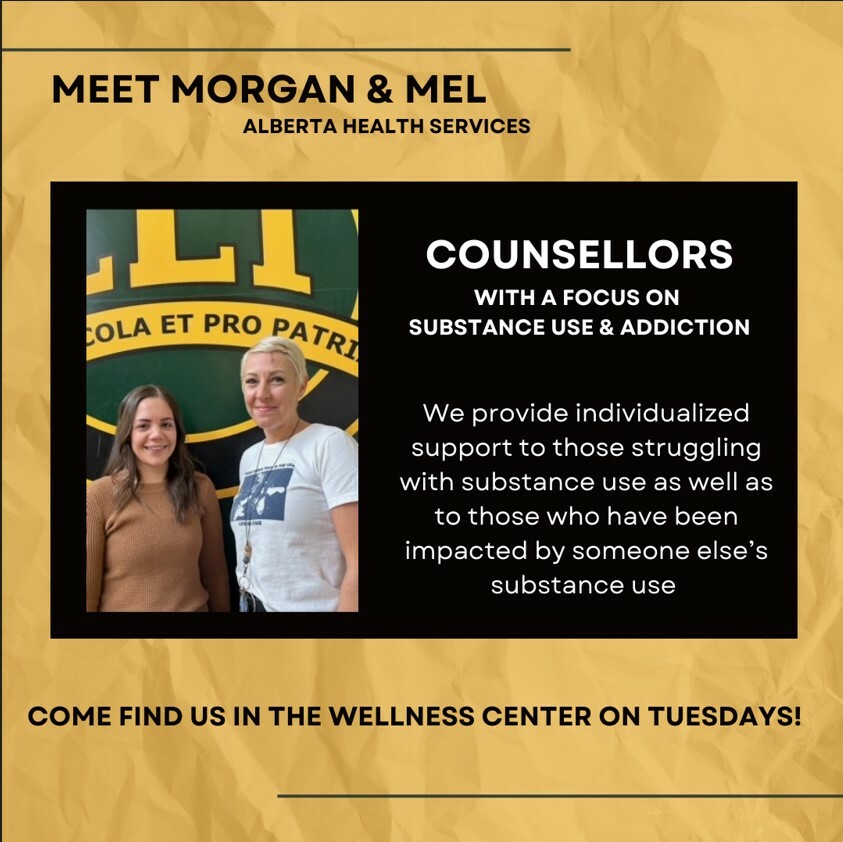

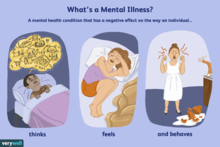
If you, or a friend, are worried you may be struggling with mental illnesses, reach out! You don't have to just keep saying "I'm Fine" (watch video here).
Kids Help Phone 1-800-668-6868
Kids Help Phone Desktop Chat: www.kidshelpphone.ca
Kids Help Phone App: "always there"
Children and Family Services: 403-381-5555
Distress Line of South Western Alberta: 1-888-787-2880
Woods Homes Youth Shelter:403-317-1777
Sexual Assault Crisis Line: 403-310-1818
Text "Connect" to 686868 to be connected to a 24/7 crisis counsellor
25 Mental Health Topics for Youth
CASA - Specific Mental Illnesses Information
This Is Not the End - A Powerful Message about Depression and Mental Health
If You're Different - BE DIFFERENT!
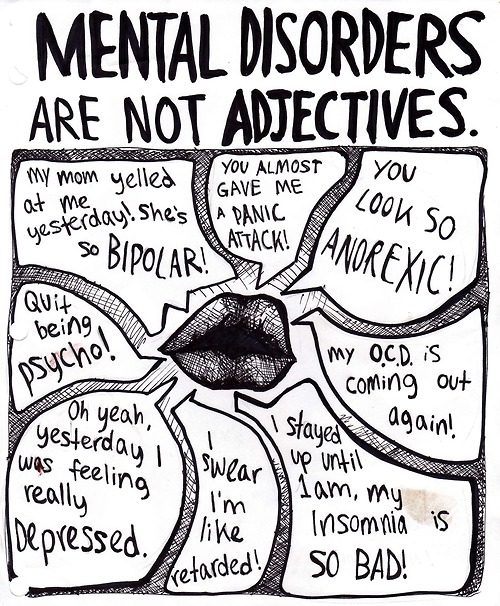
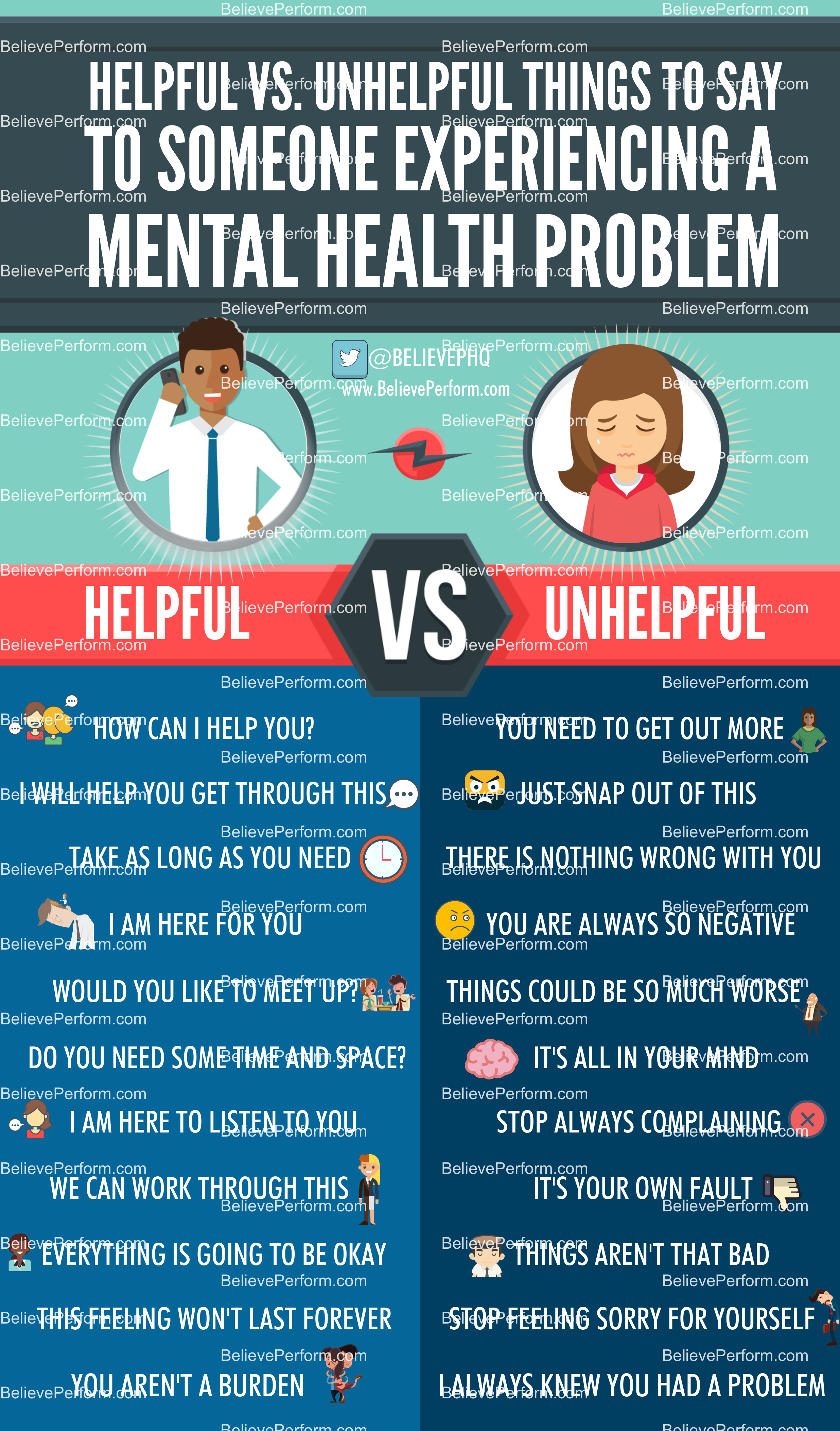
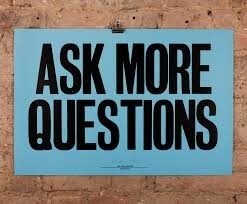
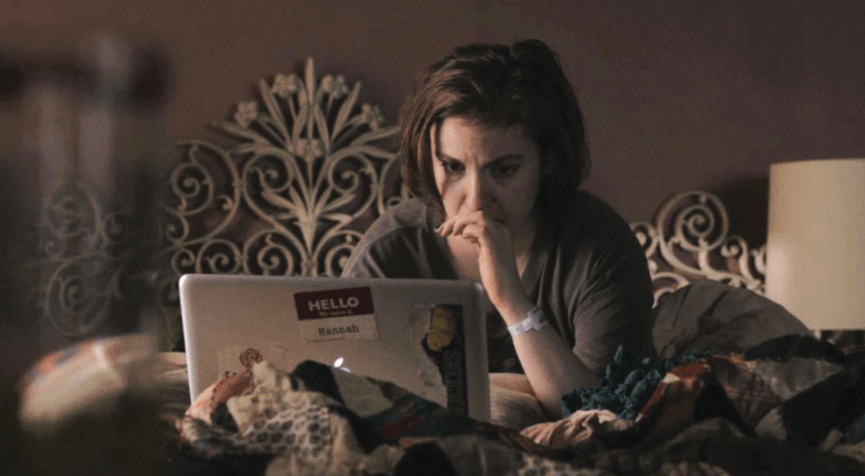
Writer and actress Lena Dunham confesses that at the tender age of just 8, “I was afraid of everything.”
She isn’t kidding.
“The list of things that keep me up at night includes but is not limited to: appendicitis, typhoid, leprosy, unclean meat, foods I haven’t seen emerge from their packaging, foods my mother hasn’t tasted first so that if we die we die together, homeless people, headaches, kidnapping, milk, the subway, sleep,” she writes.
Though Dunham, now 28, and Hannah Horvath, her neurotic alter ego in HBO’s popular series “Girls,” might seem at risk of being overcome by fear, mental health experts say OCD is highly treatable — but not with talk therapy.
OCD is a brain disorder that causes severe anxiety, involving both obsessions and compulsions that disrupt daily living. Thoughts and images can get replayed in the mind, causing “intense feelings of anxiety” and the brain tells the sufferer to react.
"There is a conversation about mental health that needs to happen in the country that we’re just at the beginning of, and all of us sharing the struggles in the world inside our heads whether big or small can help us normalize mental health problems,"
"I was very lucky to have parents who had a forward-thinking attitude about putting me in therapy and giving me the tools I need to move forward. They had the foresight to put me in therapy and encourage me to create."
“[I want my younger self] to understand that I’m not alone. There are so many other kids like me who are suffering this way and the greatest thing I can do for them and myself is to be honest.”
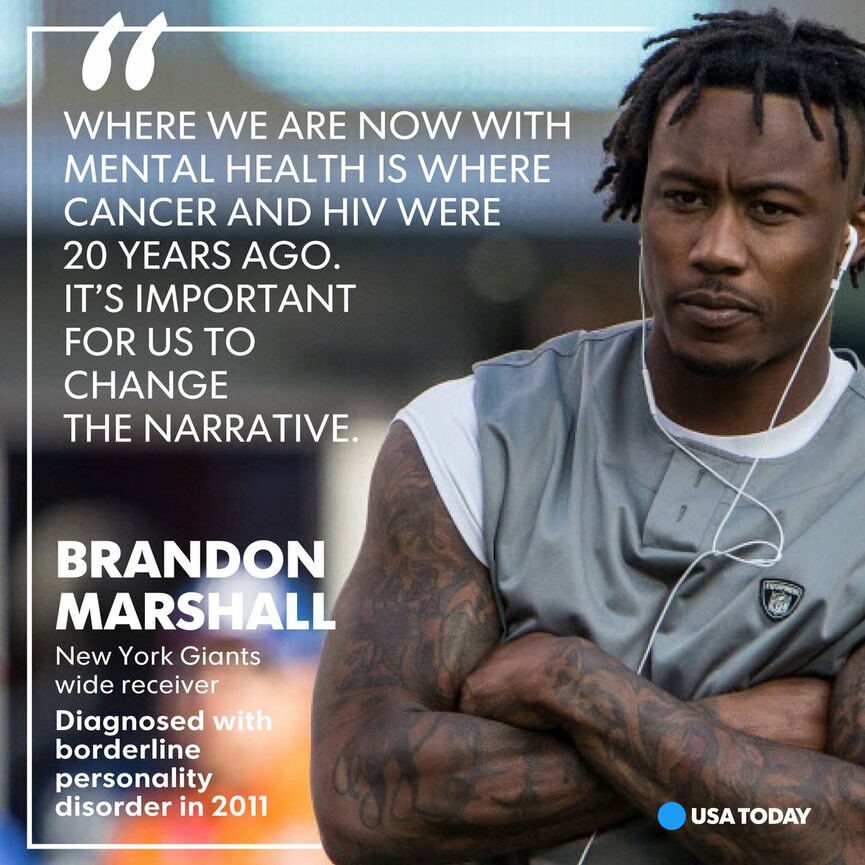
When I first heard the term “mental health,” the first thing that came to mind was mental toughness. Masking pain. Hiding it. Keeping it inside. That had been embedded in me since I was a kid. Never show weakness. Suck it up. Play through it. Live through it.
Now, I realize that mental health means the total opposite.
I’ll give you an example.
In 2009, during my last season in Denver, I was depressed. There were days when I would just sit at home in my theater room in the dark in a catatonic state. I never wanted to leave my house, and if I did, I wore a hoodie up over my head because I didn’t want anybody to recognize me. I didn’t want to talk to anybody. At the time, I didn’t know that I was depressed, and I had no idea how to deal with it. So I hid from the world.
People knew me as a guy who caught a lot of balls, and who also got into a lot of trouble. On the field, I was a Pro Bowl receiver. But off the field, my life was spiralling out of control. I made a lot of headline...for the wrong reasons.
I had multiple friends and family members who spoke up and told me that they thought I needed help. That saved my life.
I went to the McLean Hospital and undergo a clinical evaluation.
That’s when I first heard about BPD.
I was diagnosed with borderline personality disorder (BPD) in 2011. I remember the doctors there gave me a pamphlet on BPD, explaining the signs and symptoms, and I started highlighting the things I had been feeling. By the time I was done, the whole damn pamphlet was yellow.
The best way to describe BPD is that it’s an emotional disorder that affects a person’s ability to cope with and control their emotions.
When they diagnosed me, I just … exhaled — like the biggest exhale of my life. It was just a huge relief.
I was like, O.K. Now I know what this is.
The next step was to treat it.
 Bipolar disorder is not the same as the typical ups and downs every kid goes through. The mood swings are more extreme and accompanied by changes in sleep, energy level, and the ability to think clearly. Know the signs and symptoms: https://go.usa.gov/xdezM #shareNIMH
Bipolar disorder is not the same as the typical ups and downs every kid goes through. The mood swings are more extreme and accompanied by changes in sleep, energy level, and the ability to think clearly. Know the signs and symptoms: https://go.usa.gov/xdezM #shareNIMH
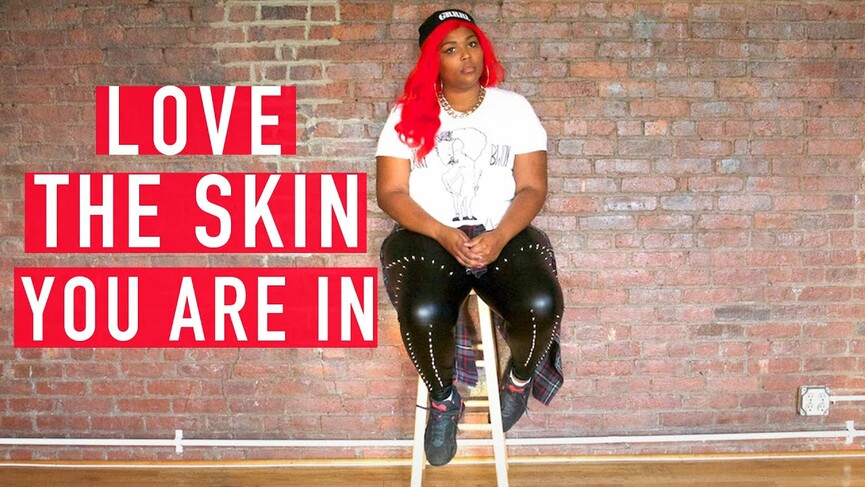
Lizzo radiates confidence, body positivity, and self-love.
But she wasn't always so comfortable with herself and specifically, her body.
Before her 2015 self-love ballad "My Skin," Lizzo struggled with body dysmorphia, and an eating disorder.
"I've come to terms with body dysmorphia and evolved," she said. "The body-positive movement is doing the same thing. We're growing together, and it's growing pains, but I'm just glad that I'm attached to something so organic and alive."
Lizzo wants you to love yourself the way she has learned to love herself. In recent years, pop turned moody, in part to reflect the consistently grim state of the world. Cuz I Love You sliced right through all that. She made the type of songs she wanted to hear at the end of a rough day, songs that want you to feel beautiful, successful, booked and busy, because Lizzo feels all those things.
"Learning to love yourself and learning to love your body is like a whole journey that I feel every person, but more specifically women, have to go through. So I feel like doing this is a good way to kinda break through and kinda seal the last chapter of the 'learning to love' and just LOVING".

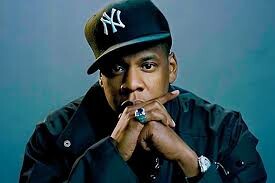
While JAY-Z hasn't publicly discussed dealing with any specific mental illness, he expressed how life-changing seeing a therapist has been for him.
"I grew so much from the experience," he told The New York Times. "But I think the most important thing I got is that everything is connected. Every emotion is connected and it comes from somewhere. And just being aware of it. Being aware of it in everyday life puts you at such a ... you're at such an advantage."
Like other people in the black community, it took Jay some time to get over the stigma associated with therapy, but he told CNN's Van Jones,
"As you grow, you realize the ridiculousness of the stigma attached to it. It's like, what? You just talk to someone about your problems."
Now that he's older and more mature, he recognizes the importance of making sure younger kids have access to the same types of resources and thinks therapists should be in schools.
"Children have the most going on...How can you know [that] when a guy's bullying you all you have to do is say, 'Man, are you OK?'"
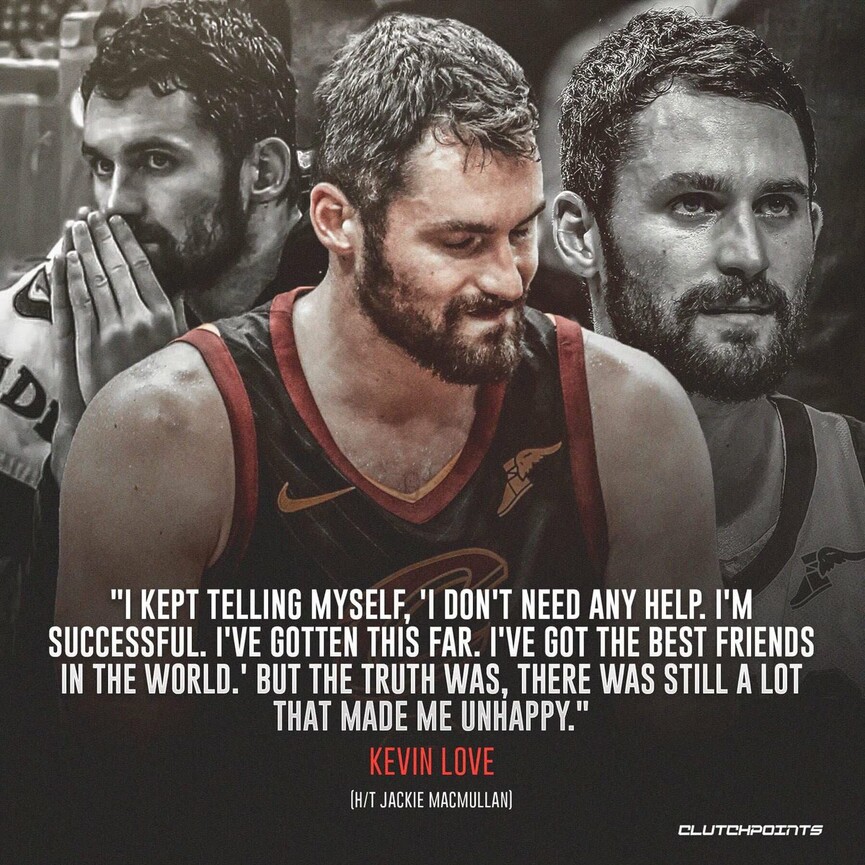
I know it from experience. Growing up, you figure out really quickly how a boy is supposed to act. You learn what it takes to “be a man.” It’s like a playbook: Be strong. Don’t talk about your feelings. Get through it on your own.
So for 29 years of my life, I followed that playbook. And look, I’m probably not telling you anything new here. These values about men and toughness are so ordinary that they’re everywhere … and invisible at the same time, surrounding us like air or water. They’re a lot like depression or anxiety in that way.
So for 29 years, I thought about mental health as someone else’s problem. Sure, I knew on some level that some people benefited from asking for help or opening up. I just never thought it was for me. To me, it was form of weakness that could derail my success in sports or make me seem weird or different.
Then came the panic attack.
It happened during a game.
It was November 5th, two months and three days after I turned 29. We were at home against the Hawks — 10th game of the season.
I knew something was wrong almost right after tip-off.
I was winded within the first few possessions. That was strange. And my game was just off. I played 15 minutes of the first half and made one basket and two free throws.
After halftime, it all hit the fan. Coach Lue called a timeout in the third quarter. When I got to the bench, I felt my heart racing faster than usual. Then I was having trouble catching my breath. It’s hard to describe, but everything was spinning, like my brain was trying to climb out of my head. The air felt thick and heavy. My mouth was like chalk. I remember our assistant coach yelling something about a defensive set. I nodded, but I didn’t hear much of what he said. By that point, I was freaking out. When I got up to walk out of the huddle, I knew I couldn’t reenter the game — like, literally couldn’t do it physically.
Read more about the story here
To watch Kevin's story on video click here
To learn more about Anxiety and its different forms, click here
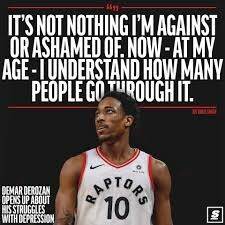
I recall times in High school where my teammates would be together engaging in camaraderie and I wouldn’t be apart of it. Not because I didn’t want to or they didn’t want me apart of it, but because I wasn’t mentally there sometimes.
But I would be expected to be there mentally regardless of what I was burdened with. It would be moments where I would mentally check out and my entire attitude would change. I could go from being happy to suddenly being sad and start to distance myself. People would ask questions like, “what’s wrong with you?” All the while not understanding what I was going through mentally.
I wouldn’t to speak to many people about my mental health because I felt like they didn’t understand what I was dealing with inside. I would feel like an outsider because I felt like people just didn’t get it.
In an interview with The Star, DeRoZan stated that, “This is real stuff, We’re all human at the end of the day. That’s why I look at every person I encounter the same way. I don’t care who you are. You can be the smallest person off the street or you could be the biggest person in the world, I’m going to treat everybody the same, with respect.”
It’s very admirable because everyone should be treated with kindness and respect, regardless of their social or economic status. I try operate on that same magnitude because I pride myself on how I treat people. I know what it’s like to be mistreated or feel left out and I don’t want to make others feel like that.

Awareness about the prevalence of mental illnesses is growing increasingly apparent, perhaps now more than ever. But this do NOT mean people are broken or less competent. Click on the photo to hear what Kevin Love and DeMar DeRosan have to say to youth today...
Connect each day this week to see how 'not alone' you are!
Click here to hear a message from Dwayne Johnson, "The Rock"
Click here to hear an interview with Kevin Love
Click here to see an interview with DeMar DeRosan
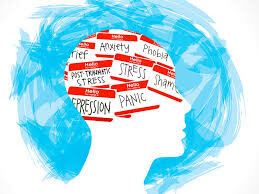
2020 has been a year like no other. Many of us have experienced change on a level that has been unprecedented. Adding to this is the fact that many mental illnesses begin to emerge around the age of 14 and a teen can find themselves struggling and feeling very isolated from their peers.
But know that YOU. ARE. NOT. ALONE!!!
There are many others walking some of the same experiences you may be.
Read here to find out what:
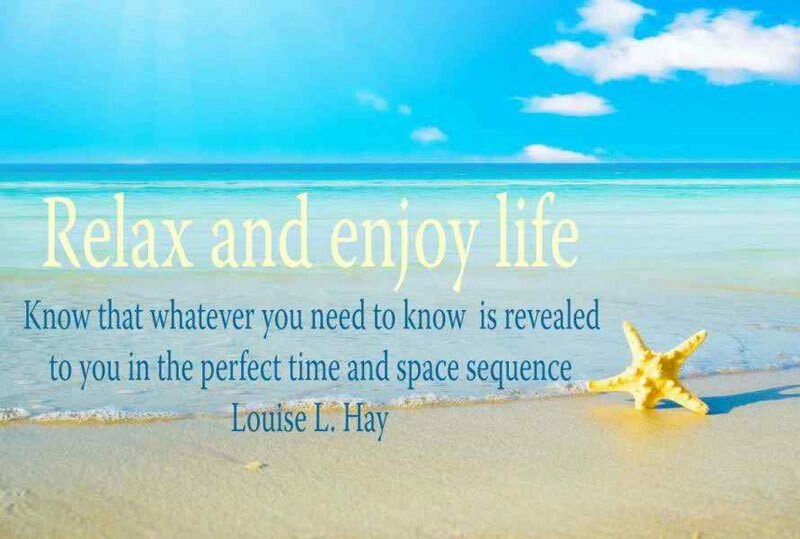
Kids Help Phone 1-800-668-6868
Kids Help Phone Desktop Chat: www.kidshelpphone.ca
Kids Help Phone App: "always there"
Children and Family Services: 403-381-5555
Distress Line of South Western Alberta: 1-888-787-2880
Woods Homes Youth Shelter:403-317-1777
Sexual Assault Crisis Line: 403-310-1818
Text "Connect" to 686868 to be connected to a 24/7 crisis counsellor

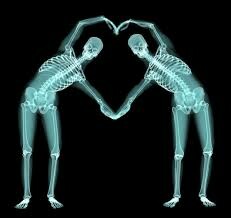
Love Has No Labels...is a movement to promote acceptance and inclusion of all people across race, religion, gender, sexual orientation, age and ability. We believe love is the most powerful force to overcome bias. We celebrate diversity and encourage people to come together because we know, together, we can create a more inclusive world.
Some Questions for Self Reflection:
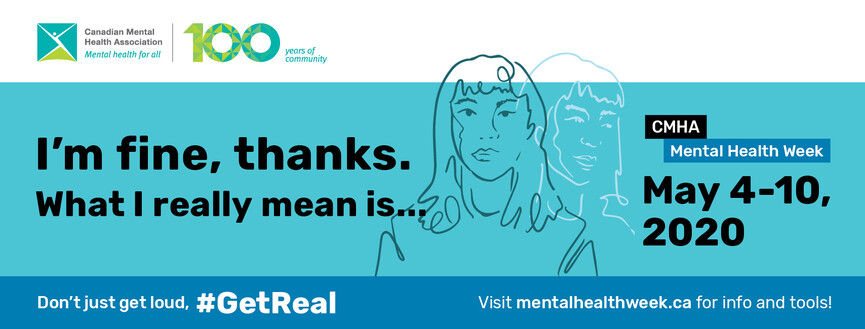
We say we're fine, even when the truth is we're ecstatic, exhausted, grateful, or even freaking out. Every time we just go through the motions, we miss out on the chance to connect for real. In times of crisis like this, we need each other more than ever.
click here for a check-up questionnaire on how YOU'RE really doing right now!
PLEASE WATCH OUR @lcigreen2gold Instagram Page FOR MENTAL HEALTH CONNECTIONS THIS WEEK
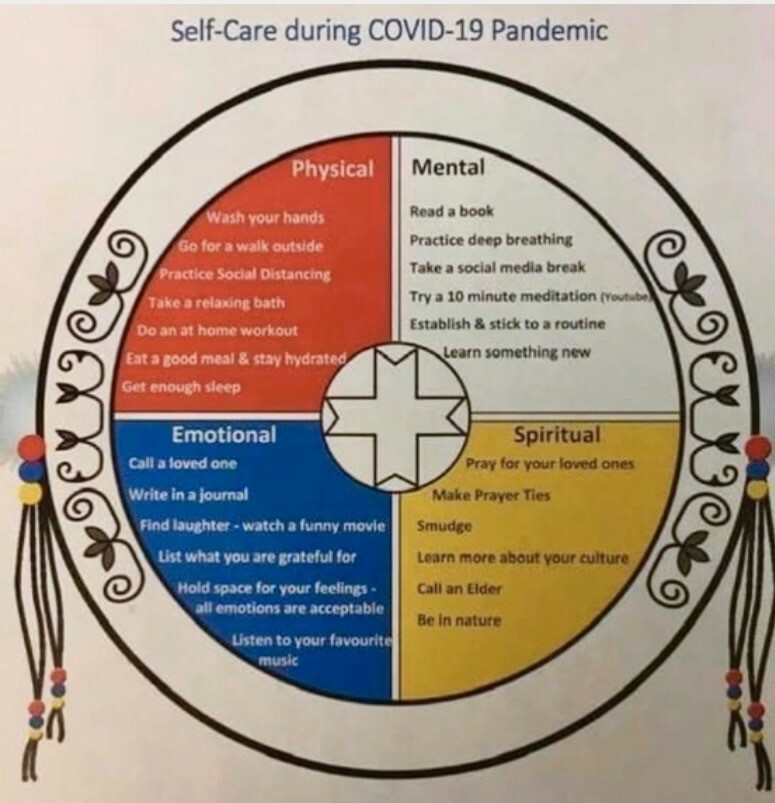
The Medicine Wheel, sometimes known as the Sacred Hoop, has been used by generations of various Native American tribes for health and healing.
It embodies the Four Directions, as well as Father Sky, Mother Earth, and Spirit Tree—all of which symbolize dimensions of health and the cycles of life.
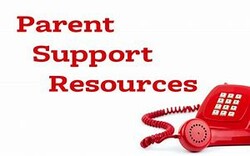
Are you a parent of a student in Grades 8 to 12? Are you struggling with our new reality of
school closure and social isolation?
Join our phone-in Parent Support Group, and find a safe space to talk about worries and
difficulties coping with the new normal. A Mental Health Therapist will facilitate the sessions.
Parent need only a phone (cell or land line) to join, and an email address to send the invitation to.
Parents do not need to commit to attending all the groups in the series, but the group will limit the number of parents invited, to ensure you have time to ask questions.
Parents who are most concerned about children in grades 8 to 12 will meet on 4 Thursdays
in a row, from 1 – 2:30. Dates will be announced soon.
There is no fee for this support group. To register, email Alison Lux at Alison.Lux@albertahealthservices.ca.
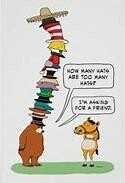

Explore some Mental Health Apps!
A quick look at some of the trending apps around:
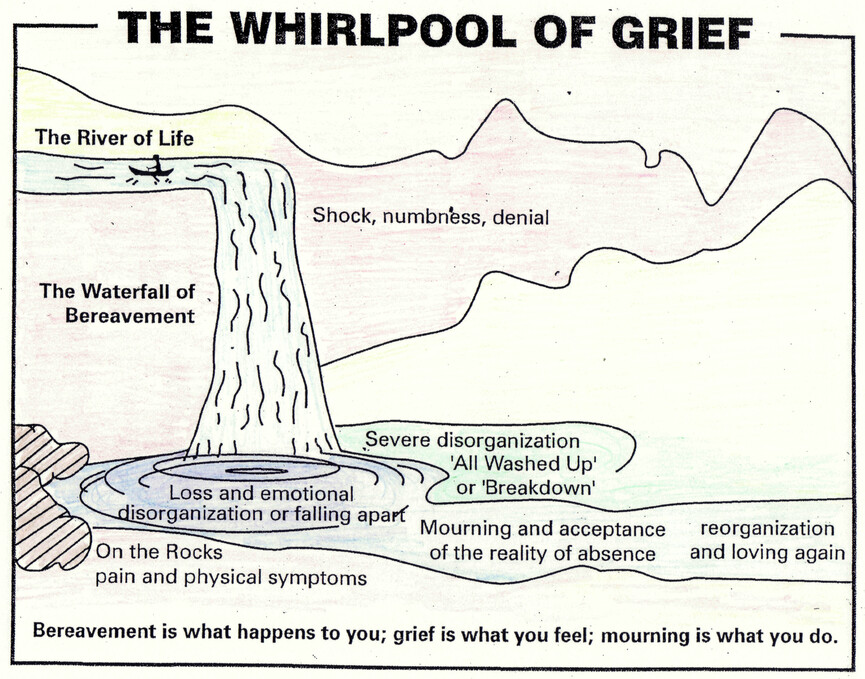
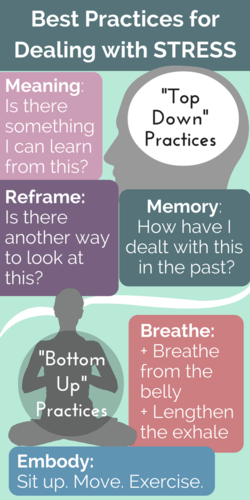
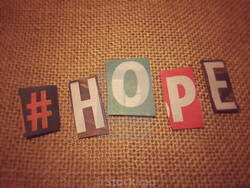
Alberta health has put out a new app that is sponsored by a number of mental health agencies across the province (eg. Alberta Health, Calgary Health, University Hospital, U of A, Alberta Children's Hospital to name a few).
If you subscribe, you will receive a text message each day to provide support and build coping skills during the COVID-19 pandemic.
To join you simply text "COVID19hope" to 393939, and you can start the service.
They will ask IF YOU WANT to take a short survey to aid in some provincial research around how COVID 19 is affecting Albertans mental health, but you DO NOT HAVE TO TAKE THE SURVEY TO GET THE SERVICE. You just bypass the survey.
Stay healthy and reach out!